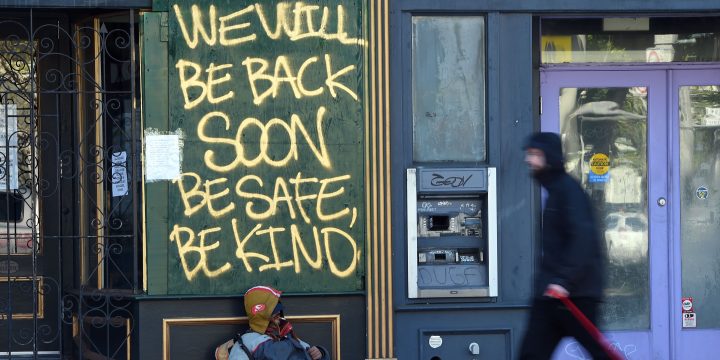
What we’ve learned so far about where the economy is headed
What we’ve learned so far about where the economy is headed

Around the time that the Coronavirus Aid, Relief, and Economic Security Act became law, we assembled a group of people who study economic and financial history to ask what the Great Depression can teach us about the economic downturn that the CARES Act was meant to combat.
Eight weeks later, we checked back in with them to talk about what we’ve learned about the crisis since then.
“I think it’s worse than I expected,” said Eric Hilt, a professor of economic history at Wellesley College.
“A month ago, I wouldn’t have said it will get as bad as the Great Depression because the factors that have caused this are so different, but now I’m not so sure,” said Kathleen Day, a lecturer at Johns Hopkins’ Carey Business School who specializes in financial crises.
“My expectation is that it will not be another Great Depression,” said Carola Frydman, a professor of finance at Northwestern University who studies financial history. “But I think it’s going to be a very bad crisis in relative terms.”
Back in March, Hilt, Day and Frydman said it would be a good idea to keep an eye on the unemployment rate, the health of the credit markets and commercial bankruptcies as the crisis unfolds.
The unemployment rate jumped from 4.4% in March to 14.7% April.
“Those are levels that we haven’t seen since the Great Depression,” said Frydman. “The key question going forward is how permanent or temporary that being increased is going to be.”
“On the other hand, financial markets are doing remarkably well, all things considered,” Hilt said. “And I think the reason for that has been the Fed’s incredibly aggressive response.” Since the crisis began, the Federal Reserve has enacted programs that could put as much as $6 trillion into the economy. “So that mitigated the damage to a pretty significant extent,” he said.
Although some well-known retailers have filed for Chapter 11 bankruptcy protection recently, including Neiman Marcus, J. Crew and J.C. Penney, the total number of commercial bankruptcy filings were lower in April 2020 than the same month last year.
“But that’s a lagging indicator,” Frydman said. “I think in the coming months, we might see more of them trickle in.”
To recap, unemployment is bad and will likely get worse; credit markets still seem to be functioning OK, which is good; and bankruptcies — we’ll have to wait and see.
But Hilt, Day and Frydman all said there is still a lot we don’t know about how this crisis will play out.
“The fact is, there’s just so much uncertainty,” Day said. “Will there be a rebound in cases once things start opening up? All those factors are so uncertain right now that we just don’t know.”
There’s a lot happening in the world. Through it all, Marketplace is here for you.
You rely on Marketplace to break down the world’s events and tell you how it affects you in a fact-based, approachable way. We rely on your financial support to keep making that possible.
Your donation today powers the independent journalism that you rely on. For just $5/month, you can help sustain Marketplace so we can keep reporting on the things that matter to you.












